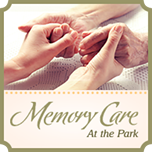Guilt is one emotion that every family caretaker may experience at some point during their journey. When you take on responsibility for another person, there is an enormous amount of pressure to make this individual comfortable and happy, while also trying to balance your comfortability and happiness as well. Of course, care decisions are rarely black and white. No one always makes the right call in every circumstance. Mistakes are part of human nature, but we do our best with the information and resources we have at the time.
One of the most guilt-inducing decisions that many family caretakers face is whether care community placement is in a loved one’s best interest. Even if a parent requires an intensive level of care and around-the-clock supervision, something that a caregiver is unable to provide single handedly, this matter is commonly accompanied by a sense of defeat.
Reasons We Feel Guilty
Even when you know relocating your parents to a senior living community is the right thing to do for their safety and health, guilty feelings may arise. Here are a few.
We feel our caregiving efforts have failed
We assume the act of moving loved ones into a community declares loudly and clearly that we can’t handle taking care of them. The paradox, of course, is that we want nothing more than to ease our parents’ burden of everyday living, even to sacrifice our comfort temporarily to improve their overall lives. This is still being accomplished, if you move them to a Personal Care or Memory Care community. There’s no reason to feel like you’ve failed at all.
We promised we’d let our loved one age at home.
While in the past you may have your parents’ promises, decisions must be made based on what’s best for the parent at the given time. Often, putting a parent in senior living is the most loving act that a child can do because it improves the quality of the parent’s life from medical and social perspectives. Parents often thrive, to their great surprise.
We know we’re asking a lot from our parents
Change is hard for everyone, and a move to a care community is a big change. Suddenly, you’re asking your parents to form acquaintances, trust professional caregivers, navigate unfamiliar schedules, and acclimate to new environments. But as we mentioned in the previous bullet point, parents often thrive in these new environments!
How to Deal With Guilt
1. Realize that you didn’t cause your loved one’s illnesses or age-related decline.
Whether facing age related issues or a progressive illness like Alzheimer’s or Parkinson’s, your loved one would still have to deal with their declining health whether you continued functioning as their sole caregiver or chose to bring in outside help.
2. Understand that professional care is often a necessary next step.
A higher level of care provides both increased safety and comfort for an aging loved one. Care communities conduct thorough needs assessments of potential residents prior to move-in. If your parent or parents are admitted because they require skilled nursing care and consistent supervision, then Personal Care or Memory Care is the appropriate setting for them.
3. Take time to acknowledge and appreciate that you are doing the best you can.
Being the primary caregiver for a parent is a huge responsibility. We must make decisions about situations that we’ve never encountered before and handle matters that often seem to have no right or wrong answers. Once we’ve made a care decision, we must endure the consequences. This may mean lots of fast-paced changes or it might mean maintaining the status quo for the time being. You’ve taken on a difficult role and you’re doing your best to make decisions based on the information and resources you currently have.
4. Learn to understand that you can’t live life for other human beings.
You can only help so much. Total control of events isn’t in your hands. There might not be a solution that makes everyone happy or solves every problem. Do your best to handle what is within your abilities, and then let the rest go.
5. If your parent is being well cared for, then let the facility do its job.
The bulk of your loved one’s care is the community’s responsibility now. Visit often, advocate for them, and do small things to brighten their day and make their life easier, but then move forward with your own life. You’ll have more energy and quality time to devote to all your relationships, and that benefits everyone!











